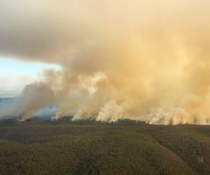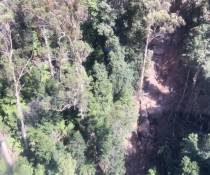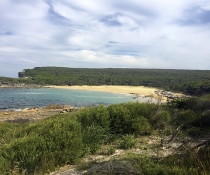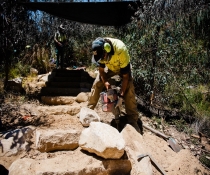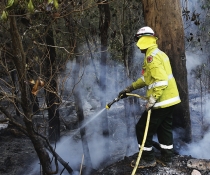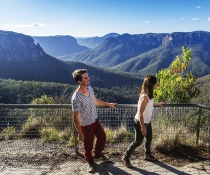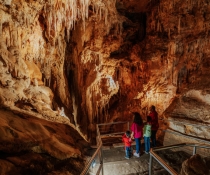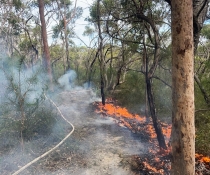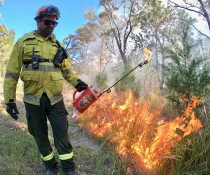Hazard reduction burn in Berowra Valley National Park
A 50-hectare hazard reduction burn is planned for Berowra Valley National Park, north of Mount Colah from Tuesday 6 December, weather permitting.

NSW National Parks and Wildlife Service (NPWS) Area Manager Greg Kirby said the purpose of the burn is to reduce naturally accumulated fuel loads in the park.
'We are taking advantage of favourable conditions to do this burn on the outskirts of Sydney, involving around 150 NPWS firefighters and crews from the NSW Rural Fire Service (RFS).
'This will help to help protect private properties and businesses in and around Mount Kuring-Gai and Mount Colah in the event of a wildfire.
'The following walking track and management trails will be closed for the duration of the burn:
- Lyre Bird Gully Track between the Great North Walk and Glenview Road.
- Arthurs Trail between Merlin Close and Excelsior Road, Banyula Trail, Galahad Trail, Yatala Trail, Lyrebird Gully Trail, Crawford Trail, Mundowie Trail, Gundah Ridge Trail and Gundah Ridge Rock Climbing Area.
'Tracks and trails will be reopened when the area is assessed as safe.
'During burning activities, there will be local road closures at Crawford Road west of Glenview Road junction, Sue Place and Banyula Place.
'Only local residents and fire fighters will be able to access these areas.
'Smoke may be visible in the area, particularly to motorists using the Pacific Highway, M1 and surrounding suburban streets.
'Drivers should use caution and obey all signage and direction from fire crews.
'People who are vulnerable to smoke are encouraged to remain indoors and keep their doors and windows closed to reduce exposure,' Mr Kirby said.
The 2022–23 NPWS hazard reduction program focuses on essential burns to protect park neighbours, assets or significant habitat to ensure the ongoing recovery of wildlife impacted by the black summer bushfires.
All burns around the state are coordinated with the NSW RFS to ensure the impacts on the community, including from smoke, are assessed at a regional level.
More information on hazard reduction activities is available at NSW RFS and on the RFS 'Fires Near Me' website and app.
For health information relating to smoke from bush fires and hazard reduction burning, visit the NSW Health website or Asthma Australia


